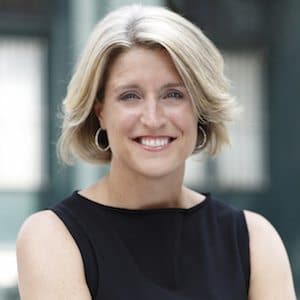
In times as uncertain as these, there’s something calming about speaking with a futurist—someone who, as Lisa Bodell describes it, knows how to marry strategic planning with scenario planning about possible, probable and preferable futures.
So, here are three things Bodell, award-winning author and CEO of futurethink, are possible outcomes we will see in the post-COVID-19 world of work that the popular Conference for Women speaker shared in a recent interview:
1. More remote work
At the basic level, I think the office is going to change—not just physically but how we work. I think there will be more remote work because people have experienced it and realize they can do it. Employers will say it is about creating work-life balance but the real reason is employers will see it as cost-efficient.”
2. Less work-life balance
“The ugly side of more remote work is that people will work longer hours. The work-life boundary is going to go away. I am already working more.”
3. More re-invention—and stronger businesses
“I think there is going to be a lot of reinvention to come out of this.” While in ordinary times, people tend to resist change, Bodell says COVID-19 has forced us to embrace it and do things we never would have done.
I think what will come out of this is a stronger business. I know that sounds ironic but I think business will become more relevant and bigger problem-solvers because we are moving into comfort with change, and this time has really forced people to re-evaluate what they are doing.
Greater comfort with change, on the individual and organizational level, is what Bodell sees as the third phase of our adapting to life in a global pandemic.
First, many of us were plunged into fear and felt frozen. Then, we started to adapt, even as we felt exhausted from change. Now, she says, we are moving toward figuring out how to get stuff done and build businesses again.
Going forward, she adds: “Change will be the norm, and we will settle into that norm.”